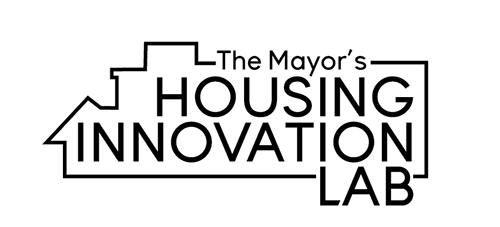Compact Living Pilot
Between 2018 and 2023, the City allowed for the development of smaller, “compact living” units to test the hypothesis that by building smaller, we could increase housing affordability, livability, and sustainability.
History of the Compact Living Guidelines
In 2018, following extensive community engagement of over 2,000 residents using a mobile Urban Housing Unit, and informed by the results of a design competition hosted by the Housing Innovation Lab, the Boston Planning & Development Agency (BPDA) approved a two-year Compact Living pilot program, creating clear guidelines for new residential units that are smaller in size than typical units with shared amenities. These new guidelines sought to increase housing options and affordability in response to a growing population, promote sustainable development, encourage innovation and creative design solutions, and minimize potential traffic resulting from increased density.
The pilot program was designed to spur the development of studio and one-bedroom units to fill the gap between the number of single people and couples in Boston (two-thirds of Boston’s population), and the number of studio and one-bedroom units in Boston (one third of the city’s unit stock).
The Compact Living Design Guidelines were intended to help developers interested in creating smaller units. On an aspirational level, the guidelines sought to:
- Increase housing affordability by increasing the production of homes in Boston
- Alleviate market pressure on family-style homes
- Build community on both a building and neighborhood scale
- Create spaces that encourage people to connect outside their unit
- Promote sustainable development that is more energy-efficient and reduces single occupancy vehicle trips
- Encourage creativity and innovation in how developers and designers meet the needs of residents
The pilot program was set to sunset in 2020; however, due to factors including the effects of the COVID-19 pandemic on the development and construction industry, this date was ultimately extended to May 31, 2023. As such, any project under review or having submitted a Letter of Intent prior to May 30, 2023, proposing units below established unit size minimums, must comply with the Compact Living Design Guidelines.
Results
During the span of the pilot program, 17 projects were approved by the BPDA Board, 12 projects were permitted, and 8 projects were completed. The Housing Innovation Lab, in partnership with the Urban and Environmental Planning program at Tufts University, conducted an evaluation of these projects to understand the extent to which these guidelines supported the development of housing that is more affordable, sustainable, and livable to inform the future of compact living in Boston. The report is accessible on the Tufts Urban and Environmental Planning program website (scroll down!)
Get Involved
We welcome feedback from community members and developers with experience or interest in the concept of compact living. We invite you to share your thoughts with us using this multilingual form or during our biweekly office hours. To schedule an appointment during our office hours, please follow this link.



